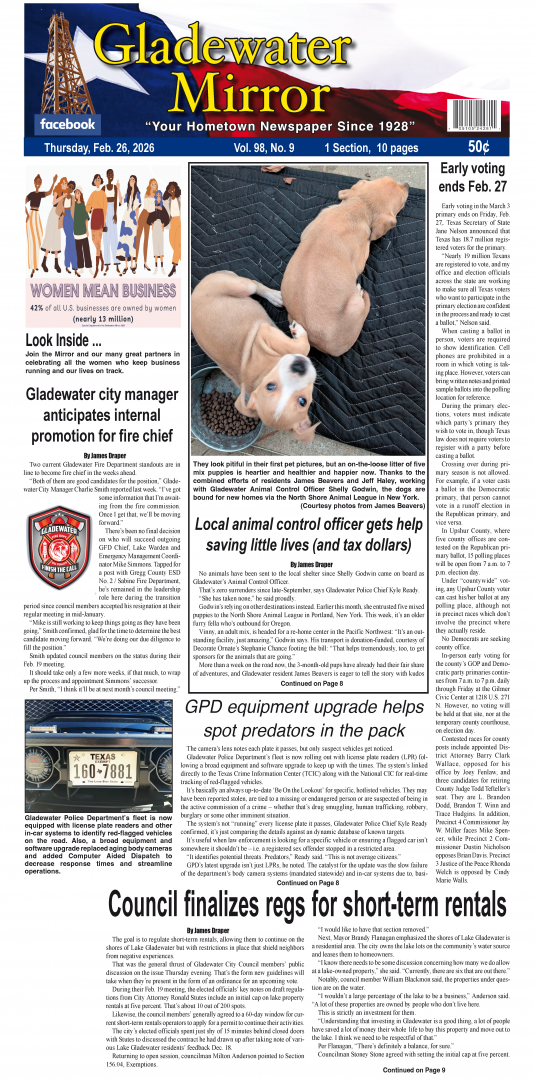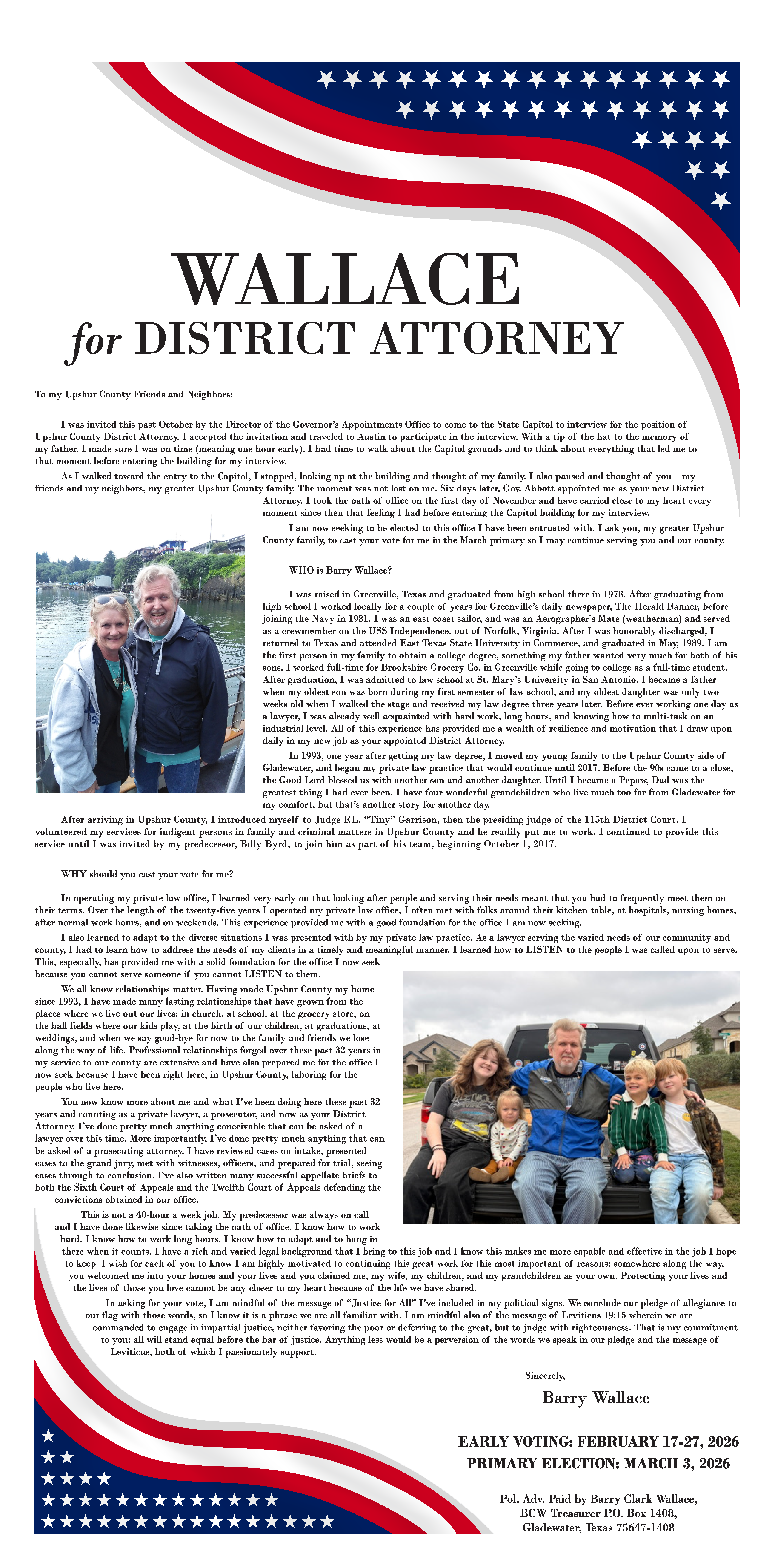ETCOG’s Rural Transportation Planning Organization (RTPO) hosted a press conference today partnered with the City of Longview to reveal that the Federal Railroad Administration (FRA) has officially designated the I-20 Corridor Intercity Passenger Rail Service as one of the selected corridors for the FRA’s FY22 Corridor Identification and Development Program (CIDP). This marks a significant milestone for the long-advocated rail connection between Dallas/Fort Worth and Atlanta, Georgia.
The I-20 Corridor long-distance passenger rail connection between Dallas/Fort Worth and Atlanta, Georgia—through Mineola, Longview, Marshall, Texas, and northern Louisiana—has been advocated for and collaborated on by a coalition of county judges, mayors, local, state, and federal elected officials, and grassroots advocates, for nearly 17 years.
The press conference was held at 2:00 p.m. at the Longview Depot/Multi-Modal Transportation Center, where Chairman of the RTPO, Judge Leward LaFleur, RTPO member and project advocate, Gregg County Judge Bill Stoudt, and project advocate, former Harrison County Judge Richard Anderson, provided details on this accomplishment.
“This Corridor grant designation by the FRA, connecting Dallas/Fort Worth through East Texas to Meridian, Mississippi, is a significant step forward for the full I-20 long-distance rail route that is envisioned between Dallas/Fort Worth and Atlanta, Georgia, and connecting with the East Coast and New York City,” said Chairman, Judge Leward LaFleur, “East Texas is the perfect route for this project, allowing the development of new services to align on existing infrastructure.”
“This is outstanding news for our region and all communities along the I-20 Corridor. The east-west connection across our southern region will bring significant benefits to both urban and rural areas. We thank all who have dedicated themselves to reaching this important milestone,” said Judge Bill Stoudt. “We also want to thank Amtrak, as always, for their very valued and continued partnership and collaboration for our Amtrak Served Communities in East Texas, as well as communities throughout Amtrak’s National Network. We look forward to the continued collaborative efforts going forward.”
The I-20 Corridor Intercity Passenger Rail Service is set to serve various cities in Texas, Louisiana, and Mississippi. To seek funding for this effort, a joint application was submitted by the Southern Rail Commission to represent the initiative, which was successfully awarded $500,000 for Step 1 of the program.
A recent press release from Congressman Nathaniel Moran also emphasized the importance of the investment, stating, “Improving East Texas’ infrastructure and connecting the First District to metropolitan areas along I-20 is an essential effort for ensuring long-term growth and prosperity. This investment will help better position Mineola, Longview, and Marshall for future economic opportunities and growth. I have seen firsthand the positive effects of investing in our railroads, and I will continue to work with our local leaders to advocate for programs that better our infrastructure and strengthen our economy.”
The I-20 Corridor project is classified under the FRA’s New Conventional Rail category, operating at speeds of up to 79-125 mph, primarily on existing rail alignments shared with other railroad operations.
Funding for the FRA’s Corridor ID program was allocated by the Infrastructure Investment and Jobs Act (IIJA), passed by Congress and signed into law by President Biden on November 15, 2021. The IIJA allocated $66 billion for rail, including $16 billion for long-distance passenger rail routes, such as the I-20 Corridor.
“This designation by FRA is a significant step and puts the I-20 Corridor long-distance passenger rail project in line for the next phases of substantial funding to move toward implementation of service. We thank all governmental agencies, federal, state, and local elected officials, grassroots advocates, and other stakeholders who worked together for many years to make this important milestone possible,” commented Judge Richard Anderson.
– Press Release








